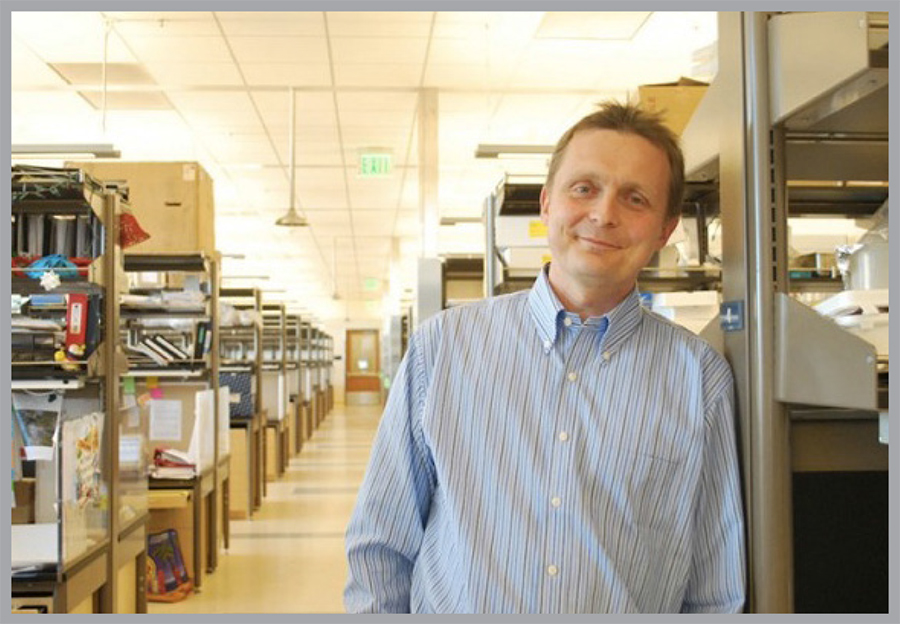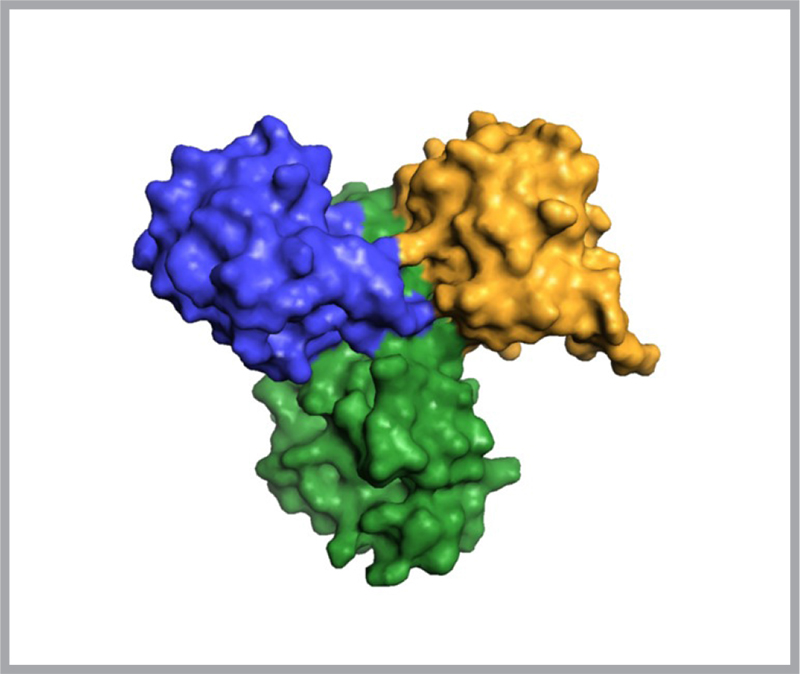The Cell’s “Everywhere” Molecule
Ubiquitin – it sounds like the name of a mythical hero who’s everywhere at once. But it’s an apt term for a molecule that plays a vital role in every cell in our body. Ubiquitin protects cells from being overrun with junk. It latches on to proteins that have outlived their usefulness and helps ferry them to the cell’s recycling center where they can be broken down for future reassembly.

When a process this critical to survival goes awry, the results can be catastrophic. If ubiquitin fails to connect to its target properly, or does so at the wrong time, the aberration can trigger chronic inflammation, neurodegeneration, even cancer.
Berkeley’s Michael Rape studies ubiqutins that form chains, “like pearls on a string,” he says. In 2008, his lab discovered a new member of this chain configuration and determined how an enzyme called Ube2S is able to assemble it inside cells. Without the Ube2S enzyme and the ubiquitin chain, he found, cells cannot divide. But with too much Ube2S – and too many ubiquitin chains – cell division runs out of control.
Rape is now on the trail of a potential drug to block Ube2S and interrupt excessive ubiquitin production to prevent uncontrolled cell division, the hallmark of cancer.
In 2012, Rape received a prestigious Bakar Fellowship which supports innovative research by early career faculty at UC Berkeley with a special focus on projects that hold commercial promise. The program provides support for his lab to develop strategies needed to screen more than 100,000 compounds to find one that can best block Ube2S, and stop excess ubitqutin from ramping up cell division.
The new funding serves two functions: It helps Rape develop a new tool to understand the “logic” by which ubiquitin controls the cell’s housekeeping needs. And at the same time, the research can zero in on a potential drug to treat cancer.
“By digging deeper – by understanding the mechanism of action – we can refine our ability to screen for compounds that block UbeS2.,” Rape says. “That would open up a completely new drug strategy for human health.”
The Bakar Fellows Program, he says, allows his lab to go where federal research grants such as those from NIH, would not allow.
NIH supports basic research on the mechanisms of molecular processes, but usually the support stops there. “They tend to think it is the job of companies to take it further and search for drugs,” Rape says.

The problem is that companies are reluctant to take on that search until someone has shown the validity of the strategy. It’s an often-unbridgeable gap between research that points to a new drug and the screening needed to find the drug.The pharmaceutical industry, Rape says, is keenly interested in targeting ubiquitins, but most have been waiting for proof of principal – the kind of progress that he now has in his sights.
“The Bakar support is allowing us to take that next step in our lab. Once we have found a molecule that can target the specific enzyme, we can move to commercial development, or demonstrate to a company that the molecule is a strong enough drug candidate for them to develop further.”
He has already founded a company, called Nurix, which focuses on the development of chemotherapeutics by targeting the ubiquitin system.
Rape, associate professor of cell and developmental biology, is a native of Bavaria. This year, he gained high honors for his ubiquitin research. He received the prestigious Vilcek Prize for Creative Promise, awarded to only three foreign-born scientists who have made outstanding contributions to society in the U.S.
Rape believes that if his ubiquitin and Ube2S discoveries can be advanced to the real world of an anti-cancer drug, it would be a “game changer” – certainly the kind of contribution to society the Bakar Fellows Program envisions.
____________________________
The Bakar Fellows Program supports innovative research by early career faculty at UC Berkeley with a special focus on projects that hold commercial promise. For more information, see http://bakarfellows.berkeley.edu.
